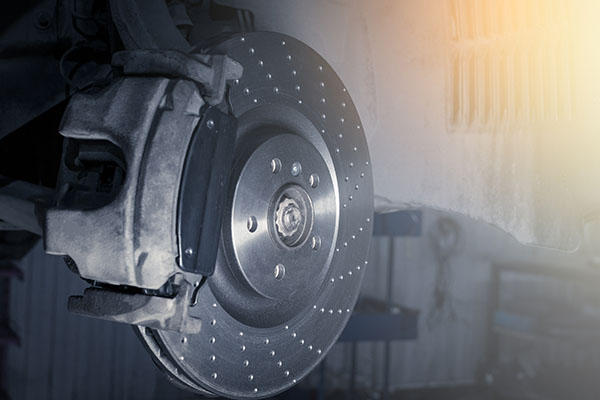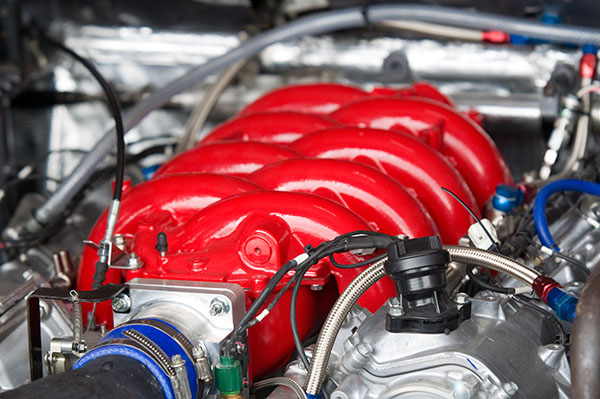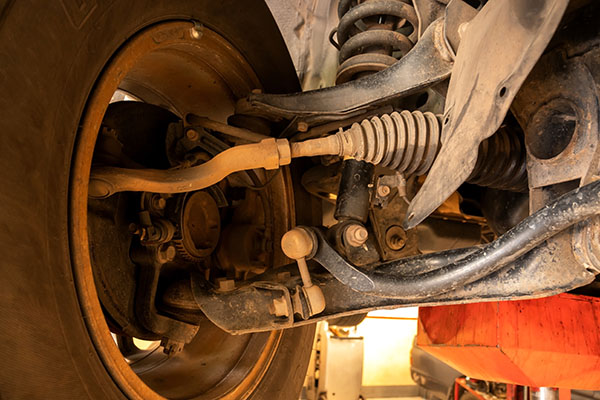Posted on 10/27/2023

Everything seems perfect on the road until you press the brake pedal, and instead of a smooth stop, you're met with a spine-tingling screech and a shaky ride. Your vehicle's brake rotors might be trying to tell you something - it's time for a change. In today's guide, we won't just teach you how to change your brake rotors. We'll also take you on a journey into the heart of your vehicle's braking system so you understand it and its ins and outs. First Gather The Tools and Materials Before you embark on this DIY adventure, you'll need to assemble your arsenal of tools and materials. From jack stands to lug wrenches and the all-important replacement brake rotors, we've got your checklist ready. Step 1: Elevate and Stabilize Your Vehicle Safety first! We'll guide you through t ... read more
Posted on 9/28/2023

When you pop the hood of your car and take a look at its intricate web of components, you might feel like you've stumbled into a labyrinth of mystery. But fear not, because today we're here to unravel one of the lesser-known heroes under the hood – the manifold. So, what is a manifold, and what does it do? The Basics of a Manifold First things first, let's demystify the term. A manifold in the automotive context is a crucial component that plays a pivotal role in your car's engine. It's a bit like the traffic cop of your vehicle's internal systems, directing and managing the flow of essential gases. As automotive technology advances, so does manifold design. Modern engines often feature variable intake manifolds that can adjust the length of the intake runners to optimize airflow at different engine speeds. This leads to improved torque and power across the rev range. Manifolds in the Intake and Exhaust There ar ... read more
Posted on 8/30/2023

Our cars are like sophisticated orchestras, each component playing a crucial role in creating the symphony of a smooth and enjoyable ride. However, just like any orchestra, sometimes a discordant note can arise in the form of unusual sounds. These sounds can be your car's way of communicating that something needs attention. In this blog, we'll unravel the meanings behind three common car sounds and provide insights into what steps you can take to address them promptly and effectively. Squealing Brakes Are you hearing a loud squeak while using the brake pedal? If so, read along to see what it means and what to do when you spot it. Meaning: Squealing brakes are often a sign that your brake pads are wearing thin. Brake pads come equipped with wear indicators, which emit a squealing sound to alert you that it's time for a replacement. Igno ... read more
Posted on 7/27/2023

Trucks are powerful workhorses that transport goods and materials across long distances, making them a vital part of every logistics system. While trucks share similarities with ordinary cars, their size, weight, and specific operating conditions necessitate specialized braking systems. Do you want to know a little bit more about that? If so, continue reading to find out! Braking Mechanism in Trucks Trucks employ a combination of braking systems to effectively bring their substantial mass to a stop. These systems work in unison to generate the necessary stopping force and ensure optimal braking performance. Although some components may resemble those found in regular cars, the design, construction, and scale of truck braking systems are tailored to handle their unique demands. Air Brake System Most heavy-duty trucks rely on an air brake system, also known as compressed air brakes or pneumatic brakes. This system utilizes compressed air to transmit pr ... read more
Posted on 6/29/2023

The steering and suspension systems in a vehicle work in tandem to provide control, stability, and a comfortable ride. While they are distinct systems with unique functions, they are interconnected and collaborate to ensure optimal handling and safety. Let's look a little bit more in-depth at this topic because there is quite a lot to dissect and explain - continue reading to find out! Understanding the Steering System The steering system, as its name implies, allows the driver to control the direction of the vehicle. It comprises various components, including: Steering wheel Steering column Rack Pinion (or steering gear) Tie rods Steering knuckles When the driver turns the steering wheel, it transfers the input through the steering column to the rack and pinion, which converts rotational motion into linear motion. The tie rods transmit this linear motion to the steering knuckles, which ultimately steer the wheels. The Function of the Suspens ... read more